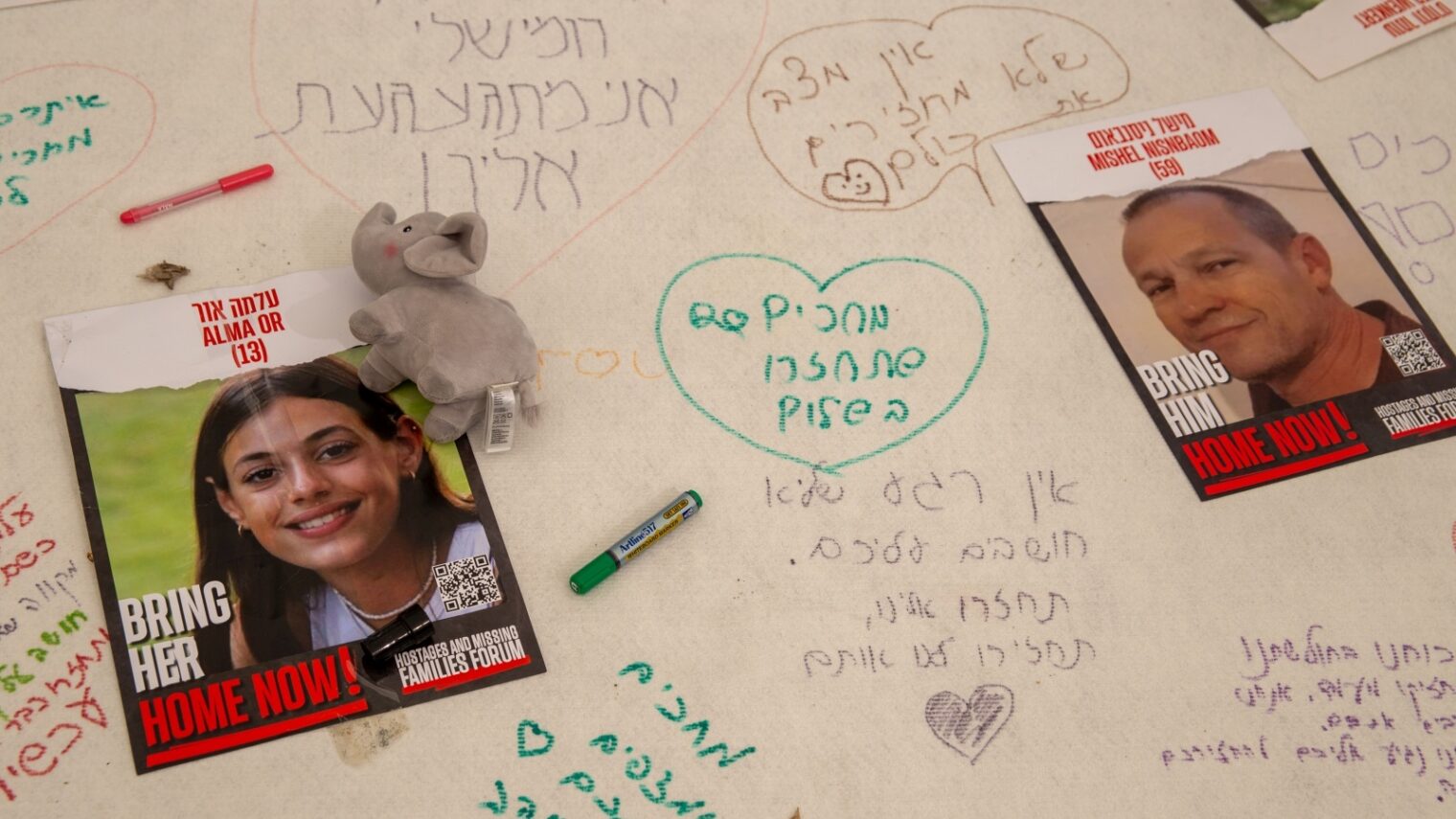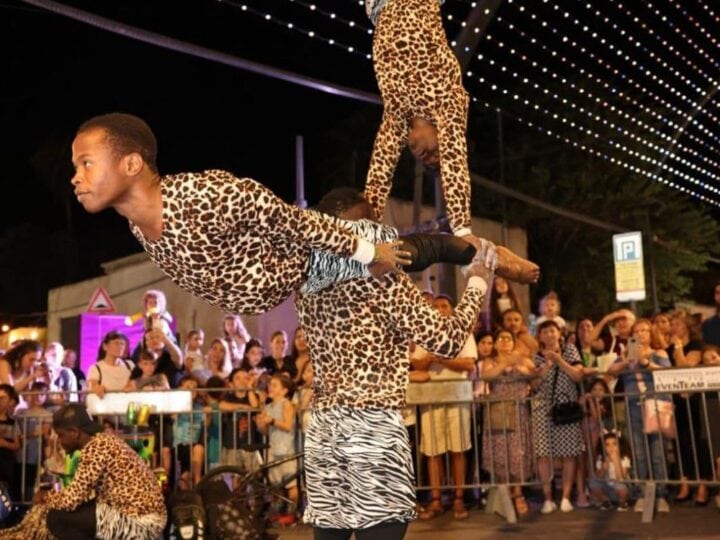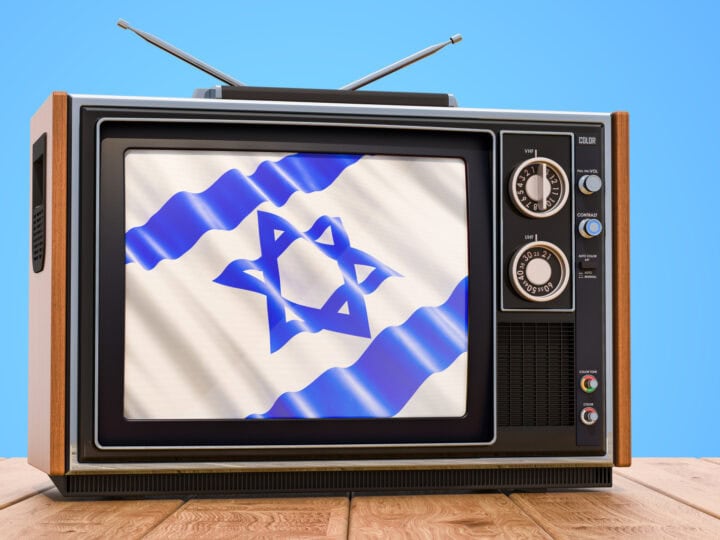Thousands of people converged on Tel Aviv on November 4 to demand the urgent release of the approximately 240 hostages held by Hamas in Gaza.
They gathered at Tel Aviv Museum Square – or Captives Square, as it has officially been renamed by the municipality after the October 7 massacre.
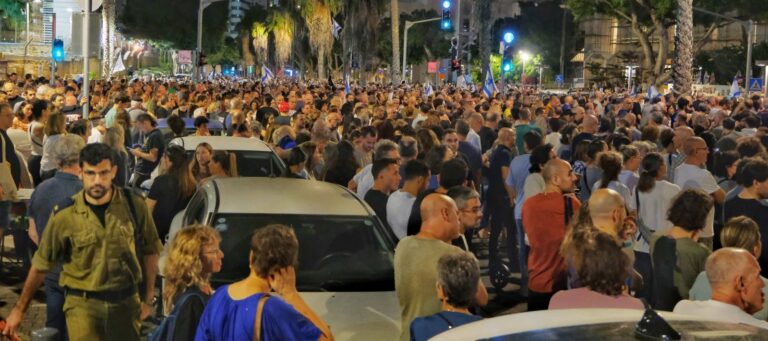
The square has become a gathering place for the families of hostages, a focus for vigils and demonstrations, and a place where ordinary Israelis can write messages of support and offer words of comfort.
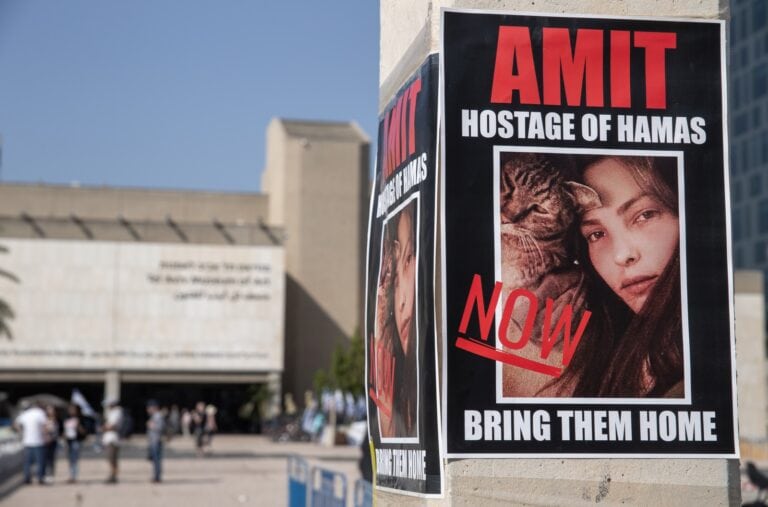
The space is dominated by a long Shabbat table, set with an empty place for each of the hostages. A baby’s bottle next to a wine glass highlights how Hamas showed no mercy when they cruelly snatched men, women and children from their homes.
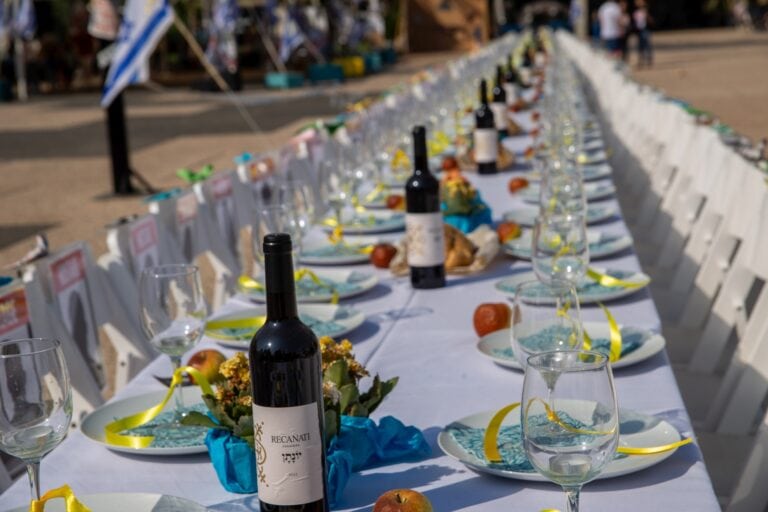
Captives Square is visible evidence of what the Hostages and Missing Families Forum is doing. But behind the scenes there’s a whole lot more going on.
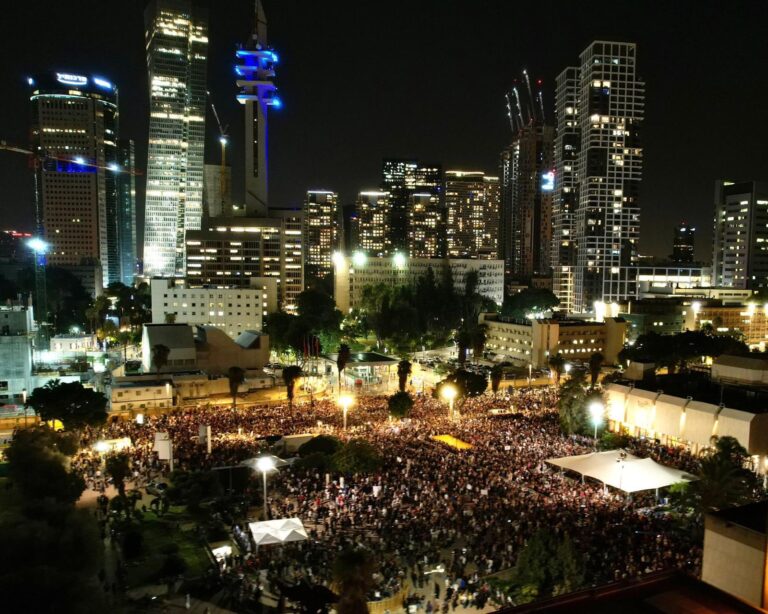
Thousands of grassroots campaigners – diplomats, lawyers, volunteers from varied backgrounds – have been offering their services free of charge in the immediate aftermath of October 7.
One thing led to another
I arrive at the group’s headquarters, a few minutes’ walk away from Captives Square, on Leonardo da Vinci Street, for an impromptu guided tour.
There are teams of people on three floors of a building that’s normally home to pioneering cybersecurity firm Check Point Software Technologies.
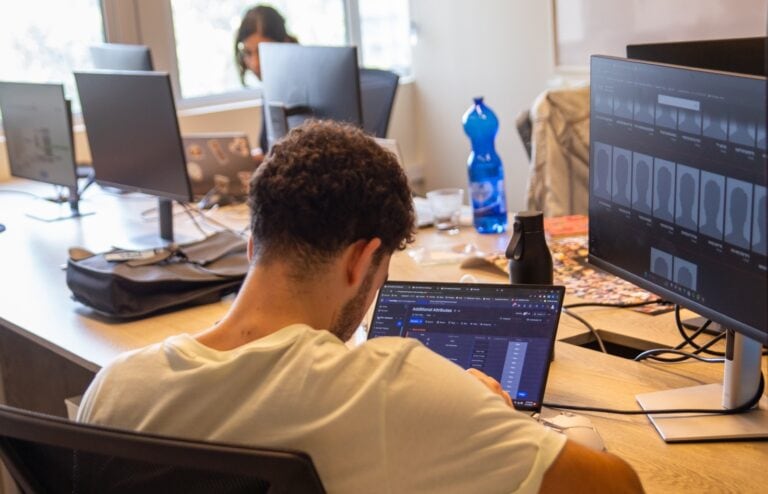
I feel a startup buzz in the air as volunteers raise funds; provide practical help, social workers and psychologists for the families and lobby on their behalf; arrange meetings with ambassadors; book overseas visits; liaise with the press; and organize events.
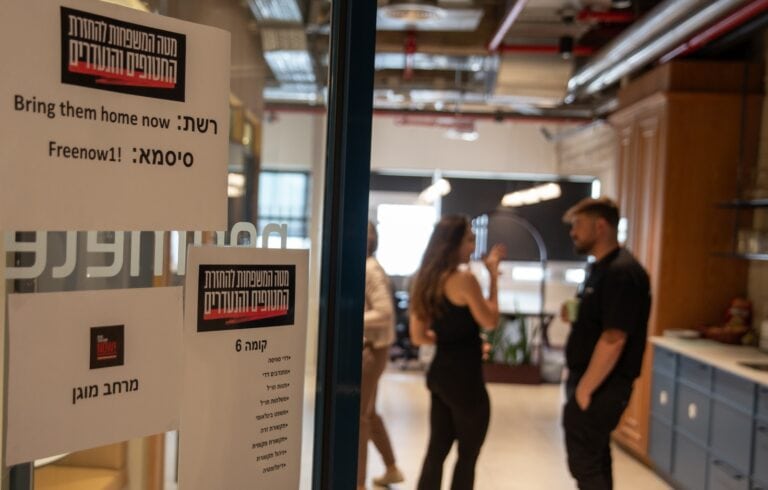
The Hostages and Missing Families Forum was founded by attorney Dudi Zalmanovich, whose daughter survived the massacre at the Nova music festival and whose nephew Omer Shem Tov, 21, is among those abducted.
“We have only one purpose, which is to help the families to bring their loved ones back home.”
“He couldn’t stay home and do nothing,” says Danny Shek, a former Israeli ambassador to France who put together the organization’s diplomatic team.
“One thing led to another and two or three days later there were hundreds of volunteers in what has become an intricate and highly professional organization.”
The families are being heard
Nadav Tamir is another former diplomat. He used to advise Shimon Peres and is now executive director of J Street in Israel, an advocacy group with the stated mission to “support strong American leadership to end the Arab-Israeli and Palestinian-Israeli conflicts peacefully and diplomatically.”
“We didn’t feel that the families were getting everything that they need,” Tamir tells me. “In times of hardship, civil society in Israel comes together, and sometimes fill a vacuum of the government.
“The government has many priorities. One of them, I hope, is the hostages, but they also want to hit Hamas badly, they want to renew our deterrent, they want all kinds of things. We have only one purpose, which is to help the families to bring their loved ones back home,” says Tamir.
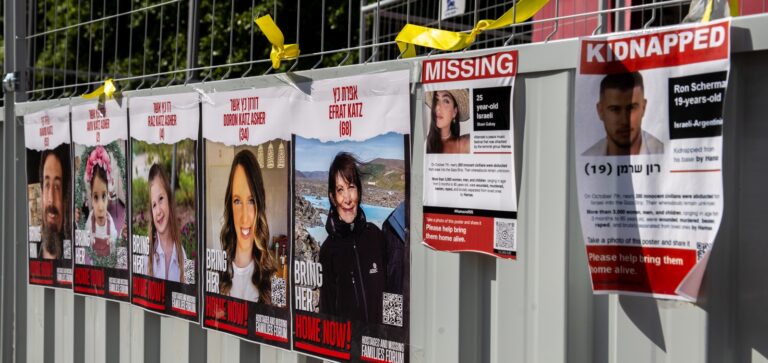
“One of the most amazing things is that the same networks that used to demonstrate against the government before October 7, are now part of the network that is helping the victims and helping the families helping the soldiers,” he adds.
“The one thing that they all need is to get them back home. But in the process, we’re trying to support them in whatever way we can. The fact that the families are being heard, the fact that they feel that they can do something for their loved ones, means a lot to them.”
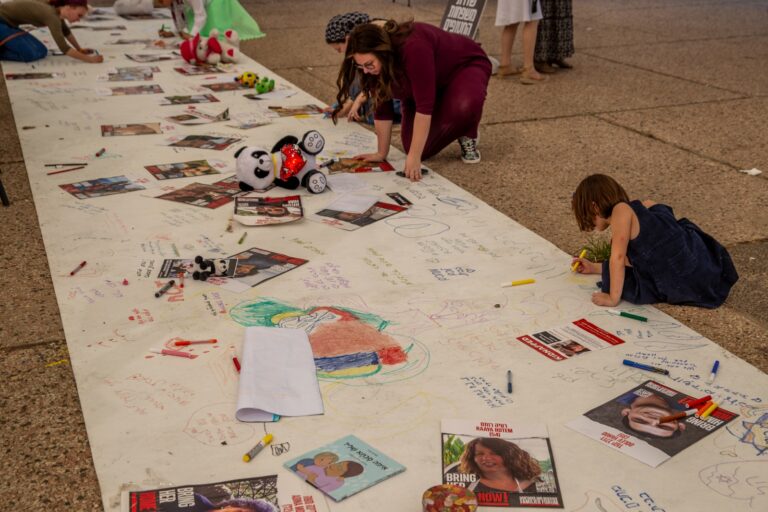
Kidnapped from the party
Back at Captives Square, I chance upon Moshe Eidelman. Some family members prefer not to speak. They are emotionally drained. But Moshe motions for me to take a seat.
His nephew, Omer Wenkert, 22, was at Eidelman’s home in Gedera, southern Israel, to celebrate Simchat Torah on the night of October 6. He grabbed a few hours’ sleep, then traveled to the Nova music festival. He arrived at 5am. At 6.30am, thousands of Hamas terrorists broke through the border fence to start their killing spree.
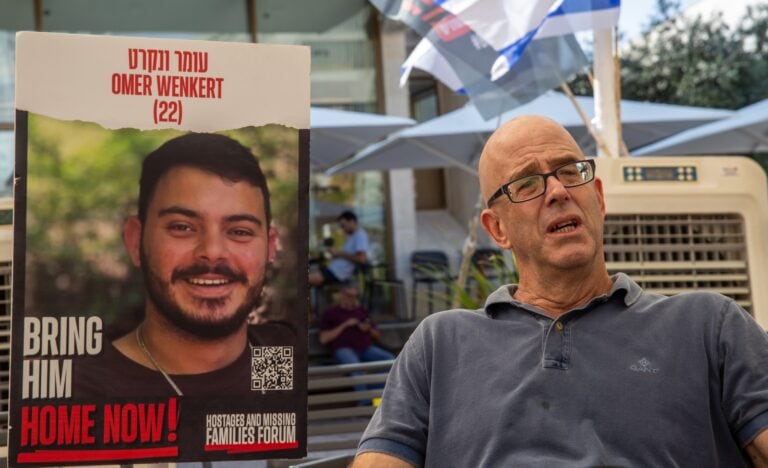
“He was kidnapped from the party,” says Eidelman. “We heard from him at 6.30am when the bombs started. We had some connection until 9am or 10am. He told his mother he was very afraid. And then we didn’t hear from him.”
They later discovered that his friend had been murdered. She was one of at least 260 victims at the festival.
“We saw a movie on Telegram that he was kidnapped,” says Eidelman. “He was on a truck only with his underwear. Hamas murderers were beating him. That’s the last thing that we saw or heard from him.
“Omer is a strong guy, but he has colitis and he’s without his medicine. His parents Niva and Shai are also strong. Omer has a brother and a sister younger than him. Ron is 18, he just joined the army and his little sister is 13, in ninth grade.”
Speaking to me in English, rather than his native Hebrew, Eidelman told me: “He loved life. He went to parties. He was learning to be a restaurant manager.”
He may have used the past tense, but in his heart I sensed there was still hope for his nephew.
It goes right to my heart
Sadly, we are a nation that knows how to live with both tragedy and uncertainty.
Piera Edelman, who lives near Tiberias in northern Israel, told me she isn’t a relative of a hostage, but feels a tremendous solidarity with them because of her own story.
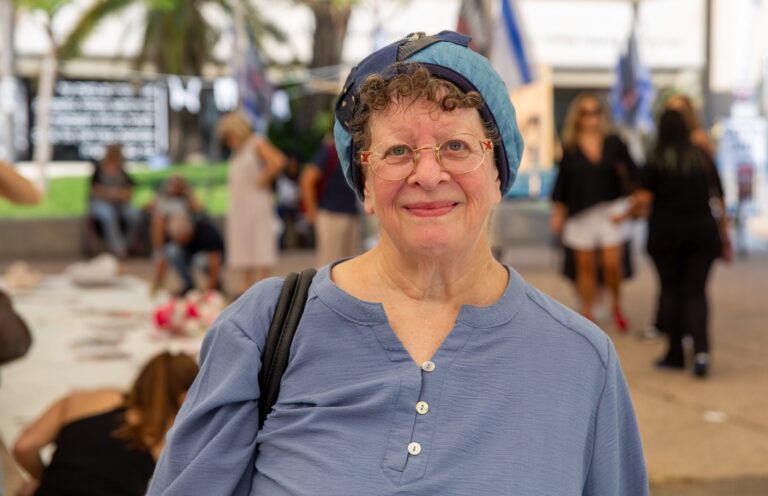
Her first husband, Chovav Landoi, was killed during the First Lebanon War in June 1982, in the battle of Sultan Yacoub, just six months after they married. Two fellow soldiers, Zvi Feldman and Yehuda Katz, remain missing in action 41 years later. The remains of a third missing soldier, Zachary Baumel, an American-Israeli, were returned in 2019.
“When I hear about this kind of situation it goes right into my heart,” she says. “I think back to the families of those soldiers, and they were only three. And here you’re talking about 240.”
For more information on the Hostages and Missing Families Forum, click here.




